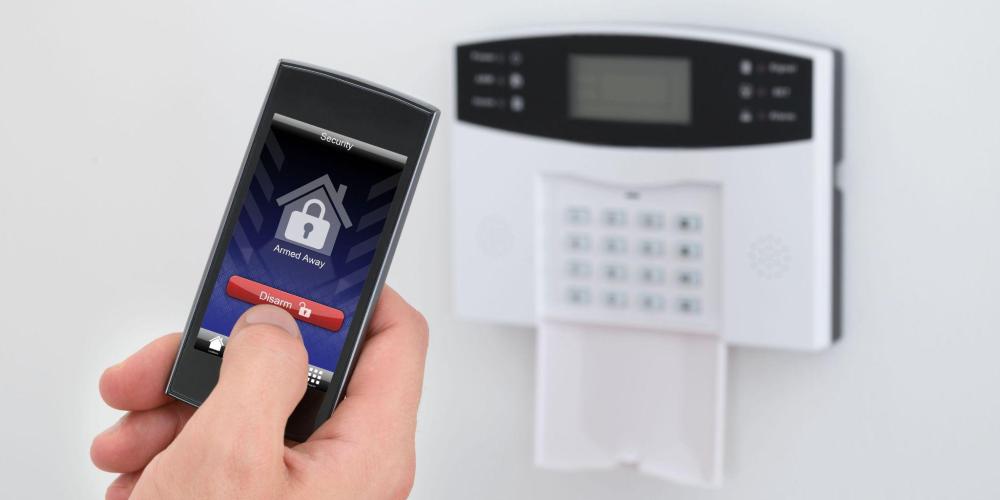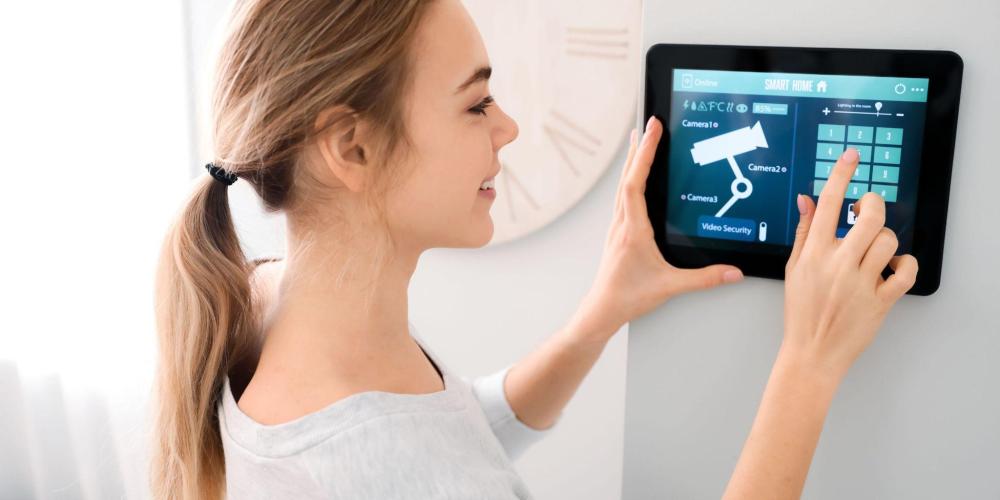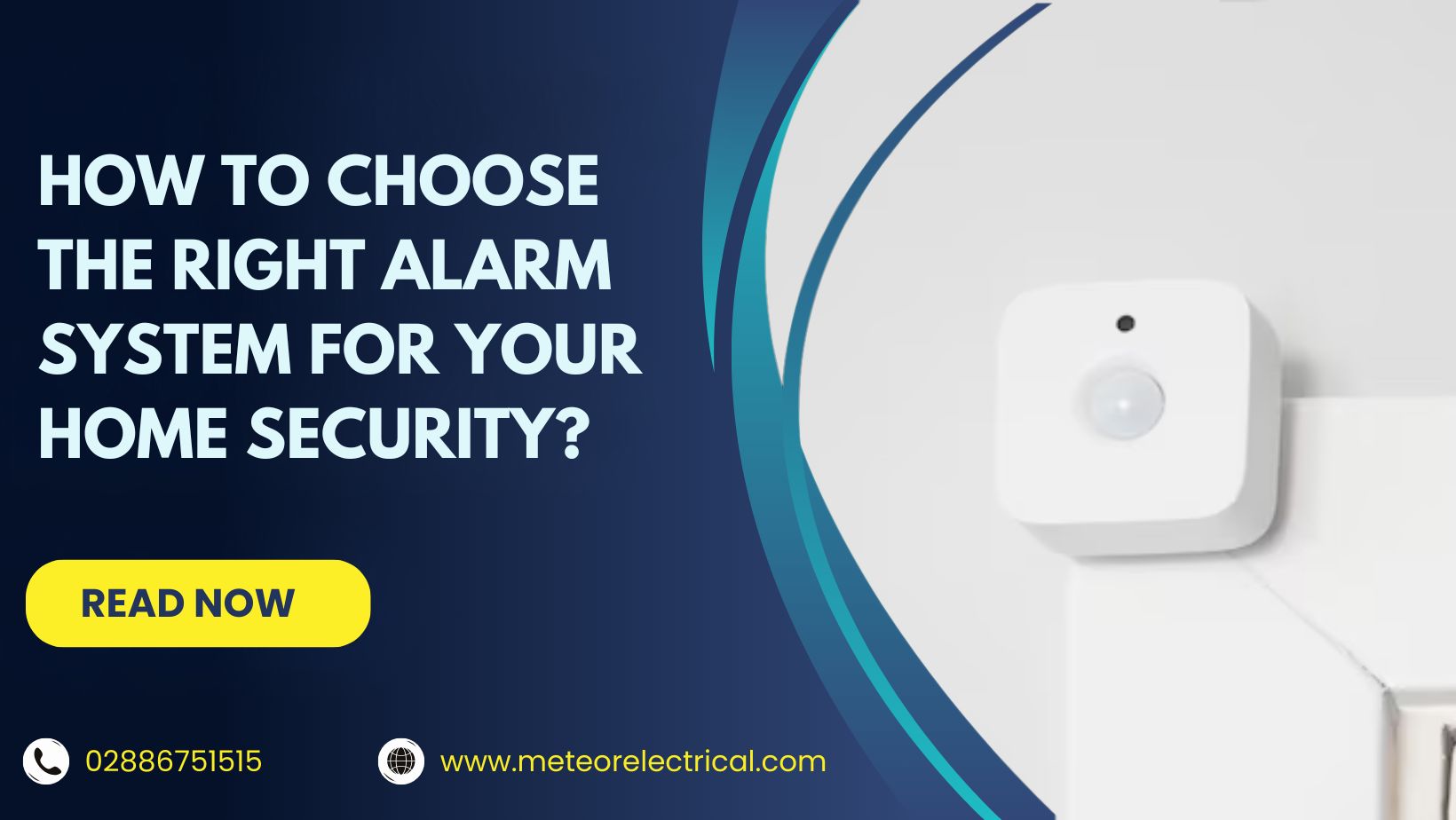Choosing the right alarm system

According to the Office for National Statistics, England and Wales recorded over 191,000 burglary offences in the year ending September 2023. While this marks a slight decrease compared to pre-pandemic figures, many areas—particularly urban and suburban neighborhoods—continue to see spikes in residential break-ins.
A report by UK Crime Stats also shows burglary remains one of the most reported property crimes in several regions across the UK.
These trends highlight the importance of installing a reliable home alarm system. With the right protection in place, you can reduce the risk of intrusion, protect your belongings, and gain peace of mind—whether you are at home or away.
Credit: The Home Depot Canada
Control & Alert Systems
- Central control unit with battery backup, keypad, and siren
- Panic buttons in key locations for emergency alerts
- Mag locks and window contacts that sound alarms if the circuit is broken
Detection Devices
- Motion detectors that sense movement in rooms
- Pressure mats placed under rugs for foot traffic detection
- Smoke, fire, and carbon monoxide alarms
- Water leak detectors for basements or bathrooms
- Temperature sensors that notify you of furnace malfunctions
Monitoring Tools
- Best home security CCTV system for 24/7 surveillance
- Night vision CCTV camera for home to monitor nighttime activity
- High-definition CCTV cameras for shops or home offices

Installing reliable alarm equipment can also lower your home insurance premiums. Many insurance companies offer discounts between 2% and 20% based on your system’s features. We recommend contacting your provider to find out how much you can save.
If you are looking for budget-friendly options, consider these simple steps to improve home security:
- Install strong window locks and deadbolts
- Use light timers when you are away to mimic occupancy
- Add motion sensor lights outside entry points
- Use security signage or dummy cameras as visual deterrents
- Shop for affordable alarm systems online that offer basic yet effective protection
| System Type | Key Features | Estimated Cost | Monitoring | Ideal For |
|---|---|---|---|---|
| Unmonitored Alarm | Loud siren, motion sensors, door/window contacts | £100 – £300 (one-time) | No | Budget-conscious homeowners |
| Monitored Alarm | 24/7 response, alerts emergency services, app control | £20 – £40/month + setup | Yes | Homes in high-risk areas |
| Smart Home Alarm | App integration, remote control, smart device sync | £150 – £500 + optional fees | Optional | Tech-savvy users and renters |
| CCTV System | Night vision CCTV camera for home, remote viewing, recording | £150 – £600+ | Optional (cloud storage) | Homes or shops needing visual security |
| Hybrid System | Combines sensors, CCTV, app control, optional monitoring | £300 – £800+ | Optional | Larger homes or businesses |
Why Alarm Systems Are Worth It?

Your home is your biggest investment—protecting it should be a top priority. At Meteor Electrical, we provide expert advice and access to high-quality alarm systems that suit every home and budget. From CCTV and motion sensors to the best fire smoke detector for home safety, we are here to help you stay secure.
Explore our full range of home security solutions at Meteor Electrical and take the first step toward a safer tomorrow.
FAQs:
1. What is the best type of alarm system for home security?
The best alarm system combines motion sensors, entry point detectors, and CCTV surveillance. Monitored systems offer 24/7 protection, but unmonitored systems can be more affordable.
2. Do home alarm systems lower insurance premiums?
Yes, most insurers offer a discount of 2% to 20% on home insurance premiums when you install a certified alarm system or CCTV setup.
3. Are wireless alarm systems better than wired ones?
Wireless systems are easier to install and more flexible, while wired systems are more reliable for large properties with complex layouts. Both have their pros and cons depending on your needs.
4. Can I install a home alarm system myself?
Yes, many affordable alarm systems online are designed for DIY installation. However, professional installation is recommended for complex systems or monitored services.
5. What is the difference between monitored and unmonitored alarm systems?
Monitored systems alert a security company or emergency services when triggered. Unmonitored systems rely on loud sirens and neighbors for response.

